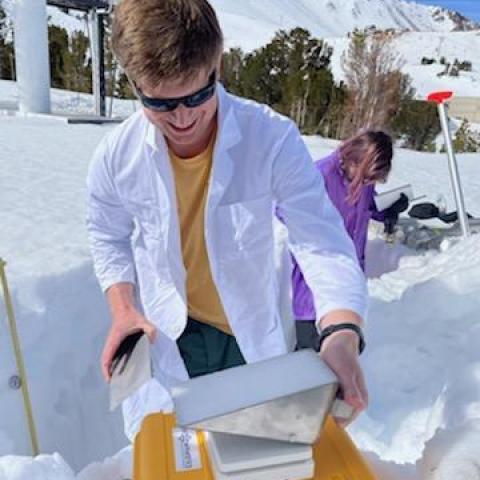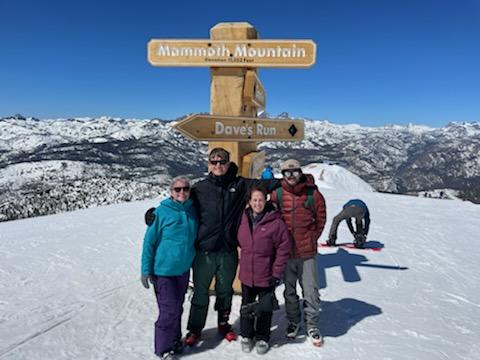
The Bren School interviewed students in the inaugural cohort of the Master of Environmental Data Science program - the MEDS Class of 2022 - to ask them what environmental issues are important to them, why they decided to attend Bren, and how the immersion in data science has changed their outlook.
Ryan Munnikhuis (MEDS '22) graduated from UC Santa Cruz in 2017 with a BS in Earth Science, concentration in Environmental Geology. His undergraduate education provided him a foundational understanding of the interactions between the biological, physical, and geologic processes. Since graduating, Ryan has worked as a forester and environmental analyst. As a forester, he has worked on various fire-related projects, including a community wildfire plan for Santa Barbara, a fuel reduction program for the County of Fresno, and a post-fire hazard tree assessment in Big Basin State Park. As an environmental analyst, he has assessed geologic, hydrologic, air quality, and greenhouse gas-related impacts of projects throughout California, such as a seismic dam retrofit in Merced County, a quarry restoration in San Diego County, and various large-scale developments.
What is a place that inspires you ecologically, such as a favorite ecosystem, place, or travel destination?
RM: I feel most at home in the Sierra Nevada Mountains. Having a background in geology and environmentalism, the Sierras always felt like a perfect example of how geology can dictate the distribution of ecological communities. The Western Sierras offer rich, diverse, and complex coniferous forests, while the Eastern Sierras are home to drier ecological communities overshadowed by dramatic and craggy glacier-lined mountains.
What environmental issues are important to you?
RM: I have always been fascinated with climate change’s effect on weather patterns in California. Growing up in Southern California, droughts and risks of wildfires perpetually loomed overhead. Having now lived in three communities affected by wildfire, Ojai, Santa Barbara, and Santa Cruz, I have witnessed firsthand the destructive power that can result from a hotter and drier California.
How did you learn about MEDS and why did you choose Bren?
RM: I have always had an affinity for data science and an aptitude for data management. However, I wanted to pursue a career that helped the environment. I had always thought that data science and environmentalism were separate realms that did not overlap. It wasn’t until I learned about the Master of Environmental Data Science program that I realized I could combine the two into a synchronous career path.
What is something that has been surprising about going to grad school?
RM: I was really surprised at how close our cohort is with one another. Speaking to graduate students in other departments, it seems like this sense of community is pretty unique to the MEDS program.

What are your thoughts about using data science to advance environmental solutions, compared to when you first started the program?
RM: Before starting the program, I had a general sense of how data science could be applied to solving environmental problems but could not precisely say how. However, now that I am in the MEDS program, I have a much clearer idea of data science’s applicability. I keep thinking back to the hours spent completing repetitive tasks that could have been done in minutes had I been familiar with data science tools. Practicing data science has also strengthened my ability to break down large and complex environmental problems into smaller, quantifiable parts. The MEDS program has demonstrated that data science can effectively be utilized to help answer many environmental issues.
What's next after Bren?
RM: Post-Bren, I would love to find a position that helps me harden communities against environmental disasters.
What's your advice for prospective MEDS students?
RM: Utilize the people around you! In general, everyone is in the same boat as you, and having people to learn from (and commiserate with) will help you go far. In terms of coding, spend some extra time learning how languages (R and Python) operate as well as the terminology used in both. This will help you better tailor questions to troubleshoot your inevitable programming issues.
Thanks, Ryan!